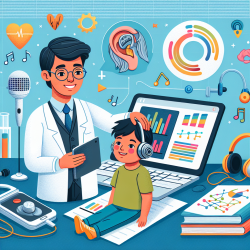Introduction
The COVID-19 pandemic has presented numerous challenges, not only in terms of public health but also in understanding human behavior regarding vaccine acceptance. A recent study titled "Freedom of Choice to Vaccinate and COVID-19 Vaccine Hesitancy in Italy" offers valuable insights into the factors influencing vaccine hesitancy. As practitioners in speech-language pathology, we can draw parallels from this study to enhance our practice, especially when it comes to understanding parental decision-making in therapeutic interventions for children.
Understanding Vaccine Hesitancy
The study conducted in Italy examined the belief in the freedom to choose vaccination and its impact on COVID-19 vaccine acceptance. The researchers found that individuals who believed in the freedom to choose whether to vaccinate had significantly lower odds of accepting the vaccine. This finding highlights the importance of understanding personal beliefs and perceptions in health-related decision-making.
Implications for Speech-Language Pathologists
As speech-language pathologists, we often encounter parents and guardians who make critical decisions regarding their child's therapy. The insights from the Italian study can be applied to our practice in several ways:
- Respecting Autonomy: Just as individuals value the freedom to choose vaccination, parents value autonomy in deciding their child's therapy path. It's crucial to respect their decisions and provide them with comprehensive information to make informed choices.
- Building Trust: The study suggests that trust in government and institutions influences vaccine acceptance. Similarly, building trust with families can enhance their acceptance of therapeutic recommendations. Transparency and clear communication are key.
- Addressing Concerns: Understanding and addressing concerns about therapy outcomes, much like addressing vaccine hesitancy, can lead to better acceptance and adherence to therapy plans.
Encouraging Further Research
The study's findings underscore the need for ongoing research into how beliefs and perceptions influence health decisions. Speech-language pathologists can benefit from similar research focused on therapeutic interventions. By understanding the factors that influence parental decisions, practitioners can tailor their approaches to better meet the needs of children and their families.
Conclusion
The study "Freedom of Choice to Vaccinate and COVID-19 Vaccine Hesitancy in Italy" provides valuable insights into the complexities of health-related decision-making. By applying these insights to speech-language pathology, practitioners can enhance their communication strategies and improve outcomes for children. For those interested in delving deeper into the study, the original research paper can be accessed here.










